THE LESSONS OF HISTORY
“Those who cannot remember the past are condemned to repeat it.” George Santayana
The theme for this month’s issue is the history of education development - on the face of it a yawn-stifling 🥱🥱subject.
The history of education development has no Wolf Hall characters, no All the President’s Men drama, nor, alas, the breathless excitement of a Simon Schama or a David Olusoga taking in, with a magisterial sweep, the huge social and personal advances generated by… the widespread adoption of free and universal primary education…
But, excitement and passion, while the essence of entertainment, are not the essential ingredients for development. The history of education is more to be found in the pace of the elephant than the bounds of the impala. This is quiet history - not the overplayed importance of royalty and politicians - but, the unsung work of civil servants and community members, of teachers and inspectors, of ministers of education and school janitors, all going about the business of improving the life prospects of new generations of children.
However, lacking passion does not mean lacking interest or stimulation, nor does it mean dry, dusty and technical. To prove this point, this issue focuses on an excellent recent paper by Luis Crouch and Deborah Spindelman, on the development of the Japanese and Korean education systems into world-class systems with world-class learning outcomes, despite war and colonisation – and what insights these stories hold for those improving education systems now.
It’s an inspiring paper because it examines in depth, not just the what and the how of education development in these countries but, most usefully, the why. It also succinctly despatches the myth that these highly successful countries are outliers with nothing to teach less developed nations. Then, in a bold step, it asks why this stellar trajectory did not happen in post-colonial African education systems and, surprisingly, suggests that donors such as UNESCO and the World Bank may have acted as unwitting inhibitors of education system development.
So, if you are involved in helping to reform or transform education systems in the global south (or north for that matter), you’ll find a wealth of insights relevant to system development today. If you’re concerned with policy and practice ; with top-down and bottom up ; with gender and disadvantage ; with equity and community….then you really need to read this paper.
But…..it’s 135 pages long !! 🫨 🫨 So, few practitioners are going to read it, which is a great pity. So, for the TL;DR group, I summarise below what I believe are the top three lessons that may be useful to present day education reformers. If that whets your appetite, there are a further five points in the link at the end of the summary – and, of course, you can always read the paper itself 😊.
Andy Brock, January 2024
Subscribe for free and receive each issue of Re Education automatically to your inbox.
Summary
I believe three major points from this paper have very wide applicability for education reformers today.
First, National Purpose. For both Japan and Korea there was a long history, starting in the 19th Century, of engaging with western education systems, partly as a result of embarrassing military confrontation with the West. In both cases, the countries sent missions (study visits) to Western countries to learn what they could about the education systems there (these teams were wider than education, but in each education was a key focus). This interest in reforming their education systems gained added impetus at the end of World War 2 through the need for national rebuilding. Education was clearly understood to be a critical building block to develop society and the economy – but, that development was inextricably linked to a concept of national purpose, encompassing social cohesion, modernisation and infrastructure development.
The uncomfortable (for the liberal-minded) connections between national purpose and nationalism – especially the militaristic overtones in pre-war Japan - are confronted head-on in the paper. Post-WW2, amongst allied countries (and amongst donors, particularly UNESCO), there were real suspicions of nationalism, exacerbated later by the cold war (some echoes today). Nonetheless, the coalescing of disparate social groups and classes around a shared and articulated common national purpose is highlighted by the authors as perhaps the key element of the successful development of education in Japan and Korea. And that leads to the second point….
Policy Borrowing. Both countries were serious about learning, and borrowing, educational ideas. But, they borrowed what they thought was useful and ignored what was not ; they were active and conscious in their borrowing and borrowed on their terms and adapted in ways that made sense to them culturally and educationally. This makes it sound like a well-planned and linear effort : it was not.
What was borrowed was not fixed or unchangeable – in fact, as in many education systems, adoption of new approaches were often resisted, rejected or adapted. There were periods of contestation (by unions, by parents, by teachers) that took decades to play out. And, in these systems in particular, the influence of western values of individualism and learning autonomy were highly contested by those who believed a more social, familial, Confucian approach to education was more suitable / natural to these societies. For example, under the post-war influence of the US, Japanese education started to decentralise, but after 1952, when the occupying forces left, centralisation again became the dominant administrative direction.
Thirdly, what is most striking in this paper is the commitment Japan and Korea made to Equity and the decisions, made early in this process of reform, to prioritise equitable approaches. Competition and inequitable resource did, and do, still exist – but, by prioritising a kind of “no-child-left-behind” policy, and funding it, they set their education systems on a course which prioritised and expected high standards at all levels and did not tolerate differences of funding or opportunity – they deliberately raised the floor as well as the ceiling.
This began as a focus on equality of inputs (avoiding unfair regional funding bias for example, and gender differences) but quickly transferred to equality of learning outcomes – which then drove expectations of high standards. To give one example, in 1969 Korea eliminated the middle school entrance exam, closed the most prestigious secondary schools and introduced a lottery-based selection system for middle schools – all to prevent a widening equity gap. The impact of this focus is reflected in Gini Coefficient comparisons, see below.
As a paper this would be rich enough in insights if it stopped here. But, in a bold step the authors go on to analyse the post-colonial development of a number of education systems in Africa, asking why there is no comparable African example to rival Japan or Korea ? Despite well-intentioned commitments to education in several countries on realising their independence, none of the countries examined was able to develop a sustained commitment to education with internationally high-ranking learning outcomes.
The principal reasons suggested are threefold : 1/ a colonial history that created hard-to-unpick multi-track education systems for different groups or classes in society 2/ an inability to truly commit to equity as the foundation for education investment post-independence and to really fund it and 3/ the unwillingness of donors to influence, support, or prioritise education for national purpose for fear of seeming to support nationalism. It is this latter point where the authors suggest donors may have unwittingly hampered the development of education in these countries.
A final thought : remember the high hopes that were espoused by many educators that COVID would lead to a radical reset for education ; a new dispensation where countries would need to “build back better” ? It seemed to be the kind of shock which might move the world onto a different track. The story of these two countries shows what could have happened - and why it did not.
Those are my top three – for a further elaboration, and five more reflections on what this paper can tell us about current education system development, click this link.
If you want to go straight to the full paper - click this link. Give your thoughts - leave a comment by clicking the button below.
"The more you know about the past, the better prepared you are for the future. " Theodore (Teddy) Roosevelt
News
Some snippets of recent news / events that seem worth sharing.
A post from Melinda French Gates on child marriage led me down an interesting rabbit hole. She, Michelle Obama and Amal Clooney visited Malawi to learn more about child marriage. Someone in the comments section noted that no less than five US states do not have a minimum marriage age – including one of the largest, California. Really ? Yes, it’s true - between 2000-2018 over 300,000 minors were legally married in the USA ! Don’t stop learning about child marriage in Africa, but there’s a problem to deal with a bit closer to home as well, Superwomen !
Harry Patrinos, Senior Education Adviser for the World Bank, published a timely blog reminding us of the lifelong returns to education. But, there’s an interesting juxtaposition of his article with a thread by John Burn-Murdoch on the difference between graduate earnings in the US and the UK. In short, US graduate earnings have continued to rise as UK graduates have stagnated in the same period. The difference is growth - the US economy is creating the jobs to keep graduates employed and incomes rising. So, yes, the returns to education are one of the very best investments you can make - but, the state of the economy matters too.
A Devex article asks whether there is too much focus on Foundational Learning ? Surely too little ? ! See my post in Issue #1. Disagreement on direction amongst donors is a big problem, as this article also shows.
Voices from the front
In a new twist on transportation hybrids, the Alif Leila Book Bus Society just launched ….. a boat. It’s a library and school combined and plys the waterways in Punjab, Pakistan. It’s a great idea and clearly a hit with kids already.
"I never knew a school could float! It’s so much fun learning here. The water around makes every story more interesting." - [A boy from Basti Qadir Baksh]
Even better, aside from buses and boats, the Alif Leila Book Bus Society does tricycles and camels too ! Brilliant initiatives - all power to them. Read more on their website and their Global Giving page.
And still on the theme of libraries…The Library Project, a charity, distributed 167 Children’s Literacy bags to students attending two rural elementary schools in Shaanxi, China. The support came from the wonderfully named Hai Fu Rong Fried Dumplings restaurant, from Xi'an.
Eat dumplings, educate a child !
And while we’re on the theme of books and libraries, here’s a sweet poem.
My heart will not be shushed
Henry Normal
I fell for a librarian
I asked her to be mine
I said "my love for you
is overdue"
And she said "Fine"Voices from the rear
(Gray and Published Research)
“I do not want to stop teaching”: The impact of conflict and displacement on teachers in southern Mosul. Maria Paradies. A shame this came too late for last months issue on post-conflict. This research highlights the healing role of education for teachers: teaching helps teachers who have experienced violence, stressful events, displacement, and conflict to be resilient and re-establish relationships and trust.
Parent Training and Child Development at Low Cost? Evidence From a Randomized Field Experiment in Mexico. Sergio Cárdenas, David K. Evans and Peter Holland. A paper on an important but little studied area - parental support for early childhood development. The interesting thing about this paper is that even small pieces of support show longer term impacts.
Fun Stuff
It’s the International Day of Education next Wednesday, January 24th. By some quirk of serendipity, it’s also my birthday. This year it’s a palindromic day (same forwards and backwards) : 24-1-24. So, on January 24th I wish happiness to all educators and learners everywhere - forwards and backwards !
If you know someone who would be interested in reading this newsletter, please pass on, by clicking the share button below. Subscription is free - subscribers receive each issue of Re Education automatically.



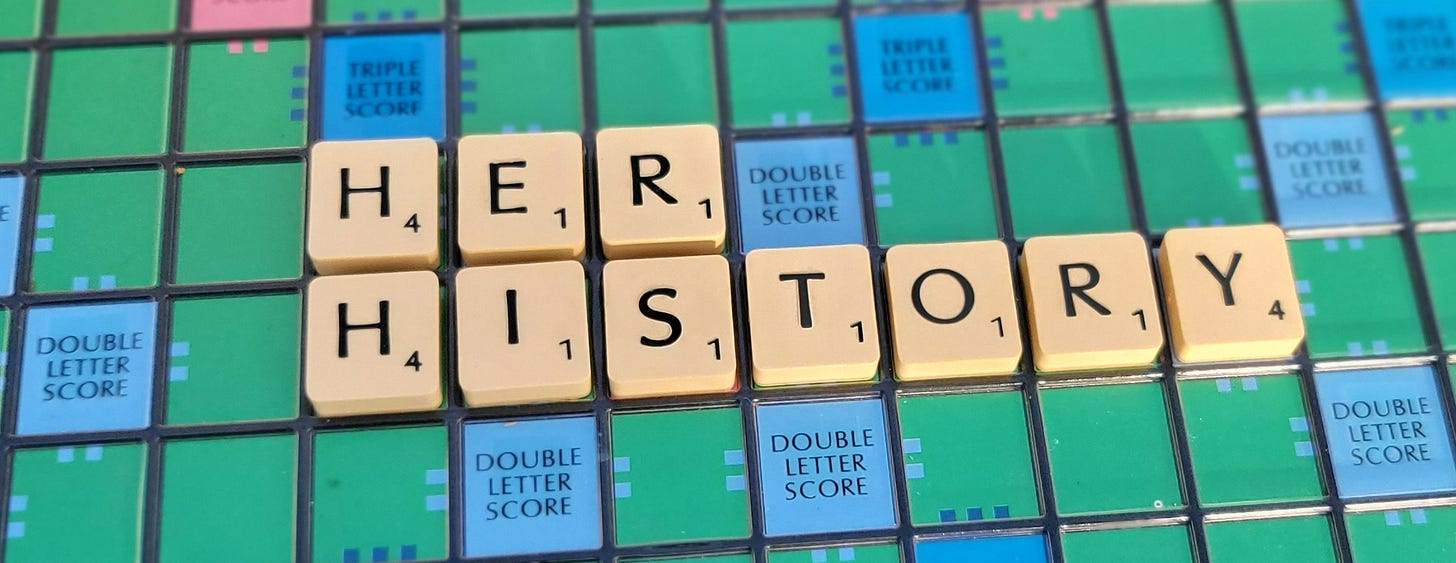

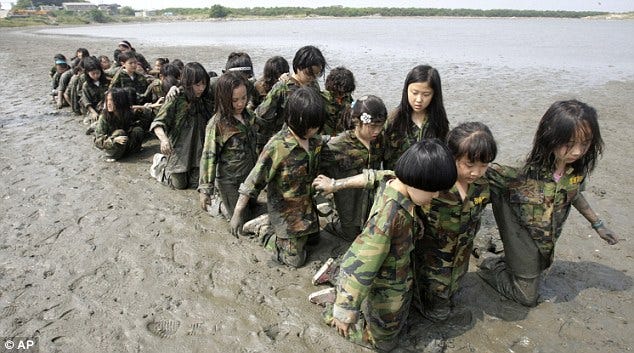


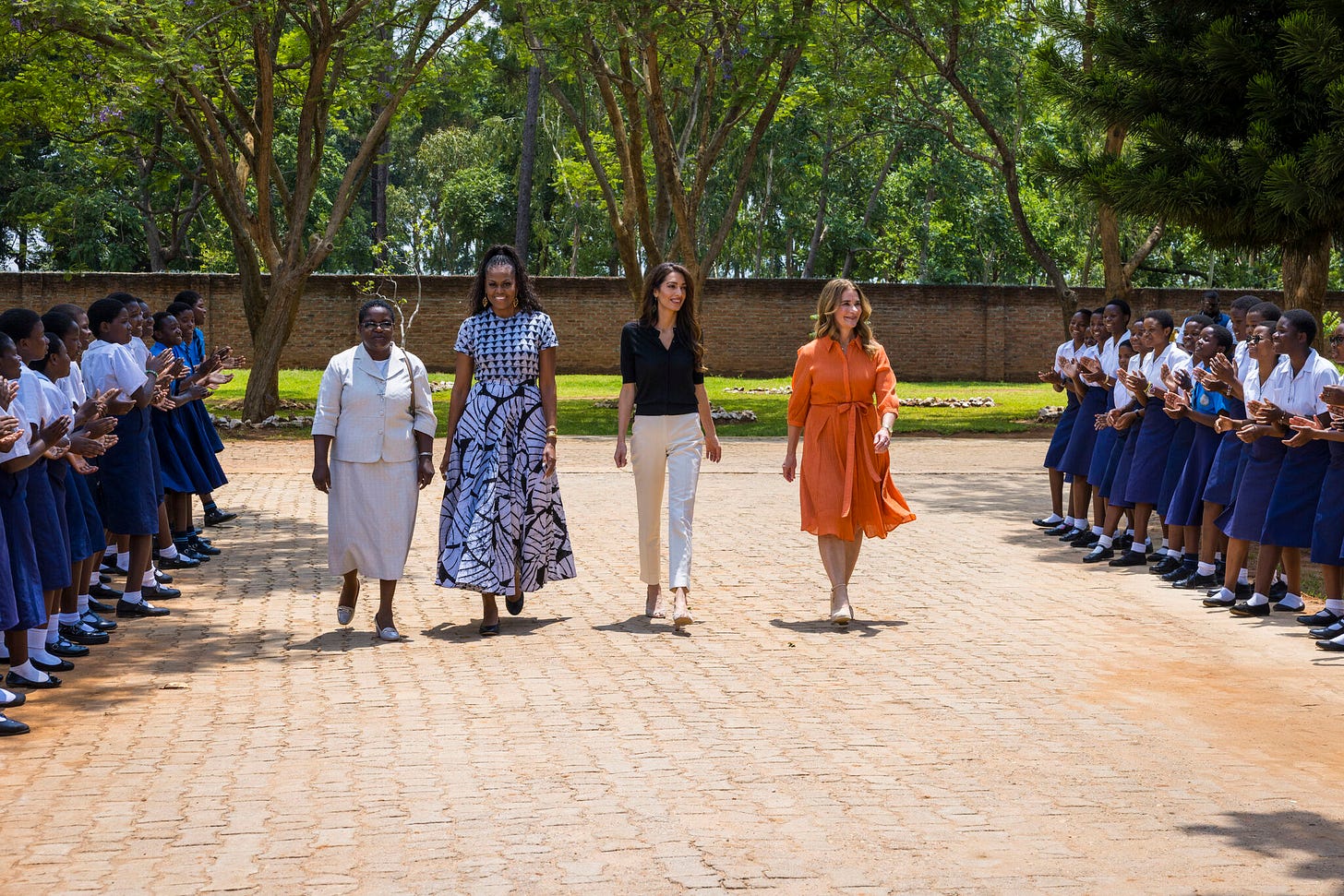
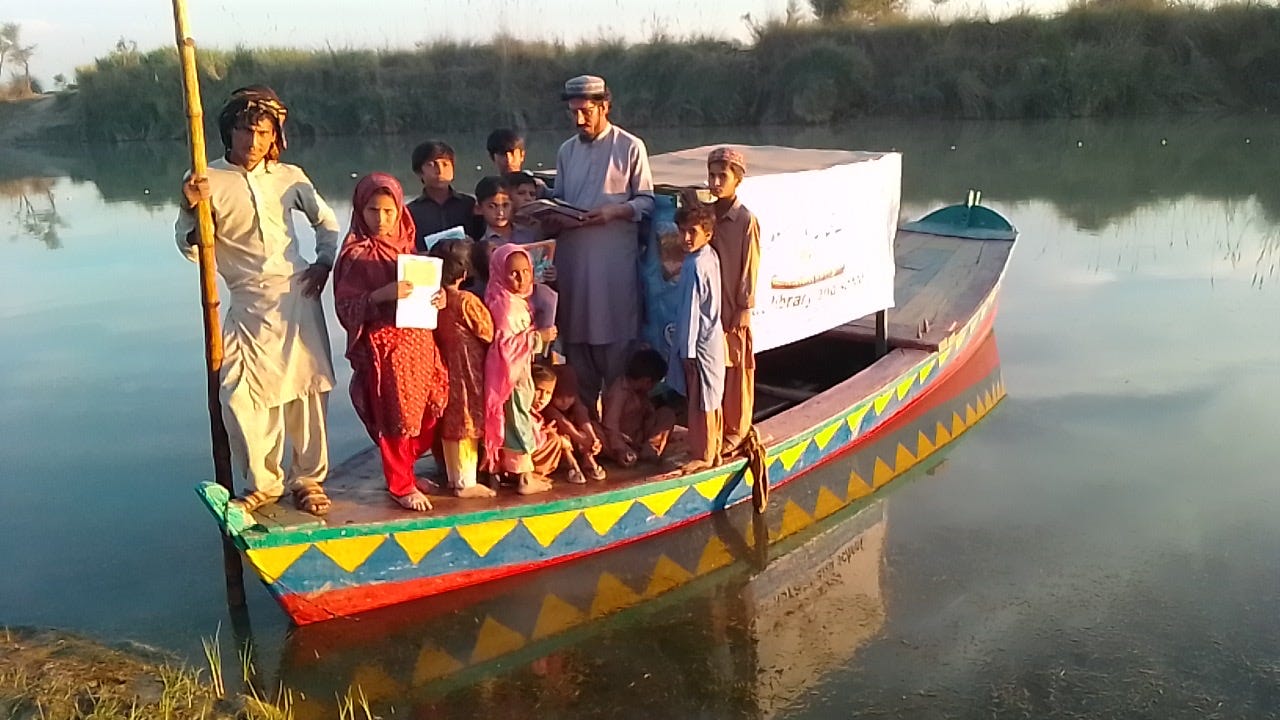
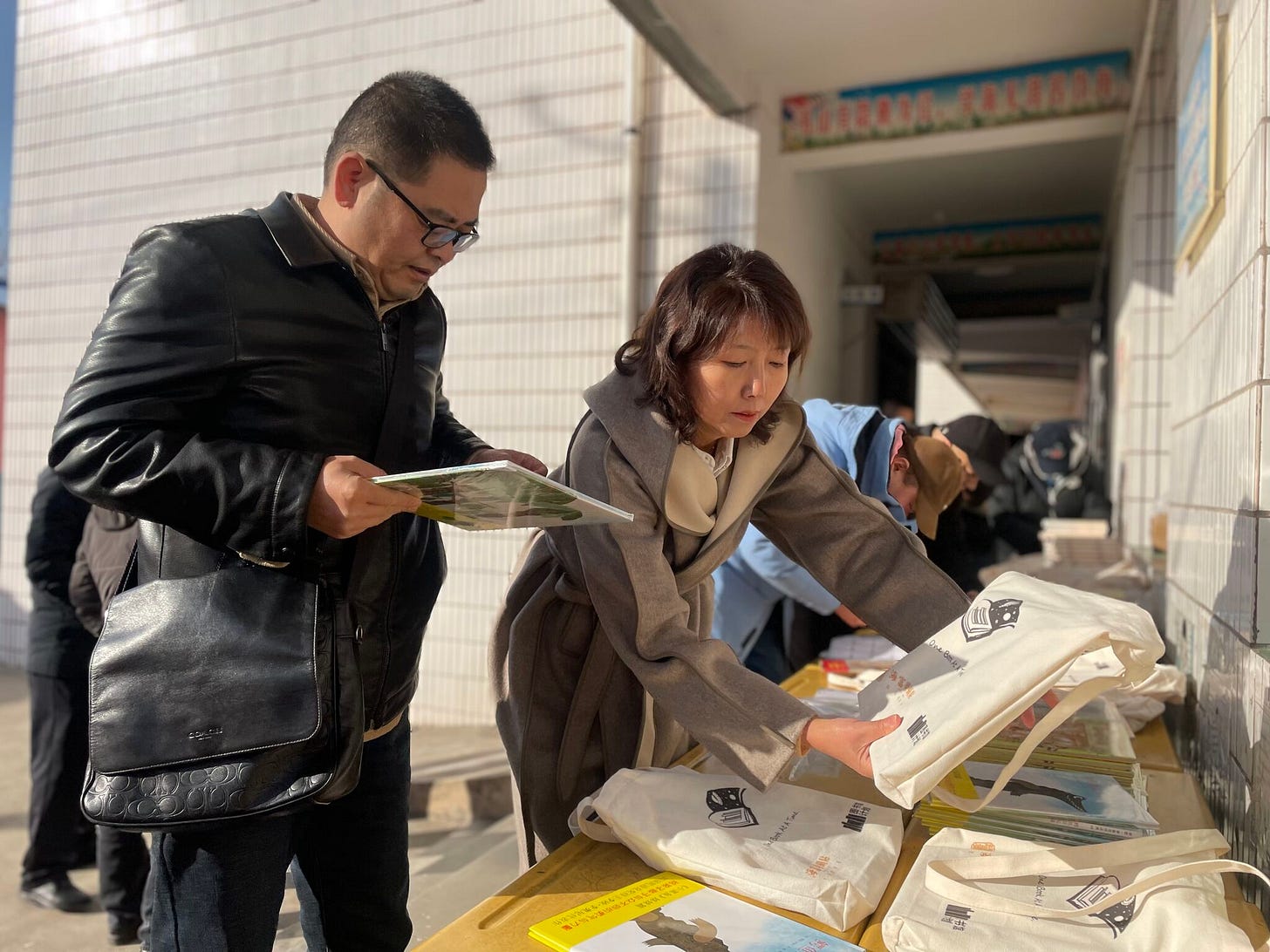

Good points HB, thanks. The full paper has quite a few thoughts on this issue and the reasons why the authors could not find similar examples in Africa, is at least partly because of the history of colonialism in each country and the way in which this deliberately restricted educational opportunities. Sure the authors may have more thoughts on this.
HB, thanks for the comment, which goes to the heart of one of the issues or dilemmas. That is why in the paper we don't really suggest nationalism as a policy, not even remotely. We try to coin the phrase of a nation-project, rather than nationalism per se. A nation-project as something that can create a sense of shared-fate and shared committment to ideals. That said, though we shy from it, there are serious scholars who do advocate for what one might simplistically call a sort of "good nationalism" or a "rights-oriented" nationalism. Not to fob off the work on you, if you read page 129 and the following few pages in the paper itself. Andy provides the link but here it is again: https://riseprogramme.org/publications/purpose-driven-education-system-transformations-history-lessons-korea-and-japan.html As to examples, one could cite Japan and Korea themselves, but Japan AFTER the war, where there was still an emphasis on education as important to the nation but where militarism was downplayed in policy, in society in general, etc. SImilarly if you look at curricula in Korea, they tend to emphasize world citizen ship. So the values being transmitted are, again, to put it simplistically, "good" and "decent" values, but in the context of a nation-project that definitely saw the nation as the locus of effort, pride, etc. If you want more examples, have a look at the pages in the paper I reference. One could note perhaps Turkiye with Ataturk, India for a good period after its independence, but perhaps not so much recently with the Hindu nationalism/sectariamism pushed by the BJP. (As you can see, one can quickly get into politics and ideololgy here, and beyond one's depth, which I do not want to do, at least not in a substack comment!) There are actually also very scholarly videos on Youtube on this whole debate. Some of them are talks by "public intellectuals" and are not too heavy into poli-sci, some of them do get very scholarly. You can search for terms such as rights oriented nationalism and so on. I hope that makes sense. Ultimately I am not sure what one can recommend here, other than that the issue would benefit from discussion. but see the paper for some ideas.